
The selection of the most interesting solutions in December is special. After all, we end the year with it, as if drawing a line under it — that's what 2023 was like, and those were the solutions in it. Let these be only December ones. But that's why they have a little bit of everything: the memory of Ukrainian fallen soldiers, the restoration of Ukraine and its environment, and Ukraine's future — children and toeenagers who are already involved in the restoration of Ukraine today.
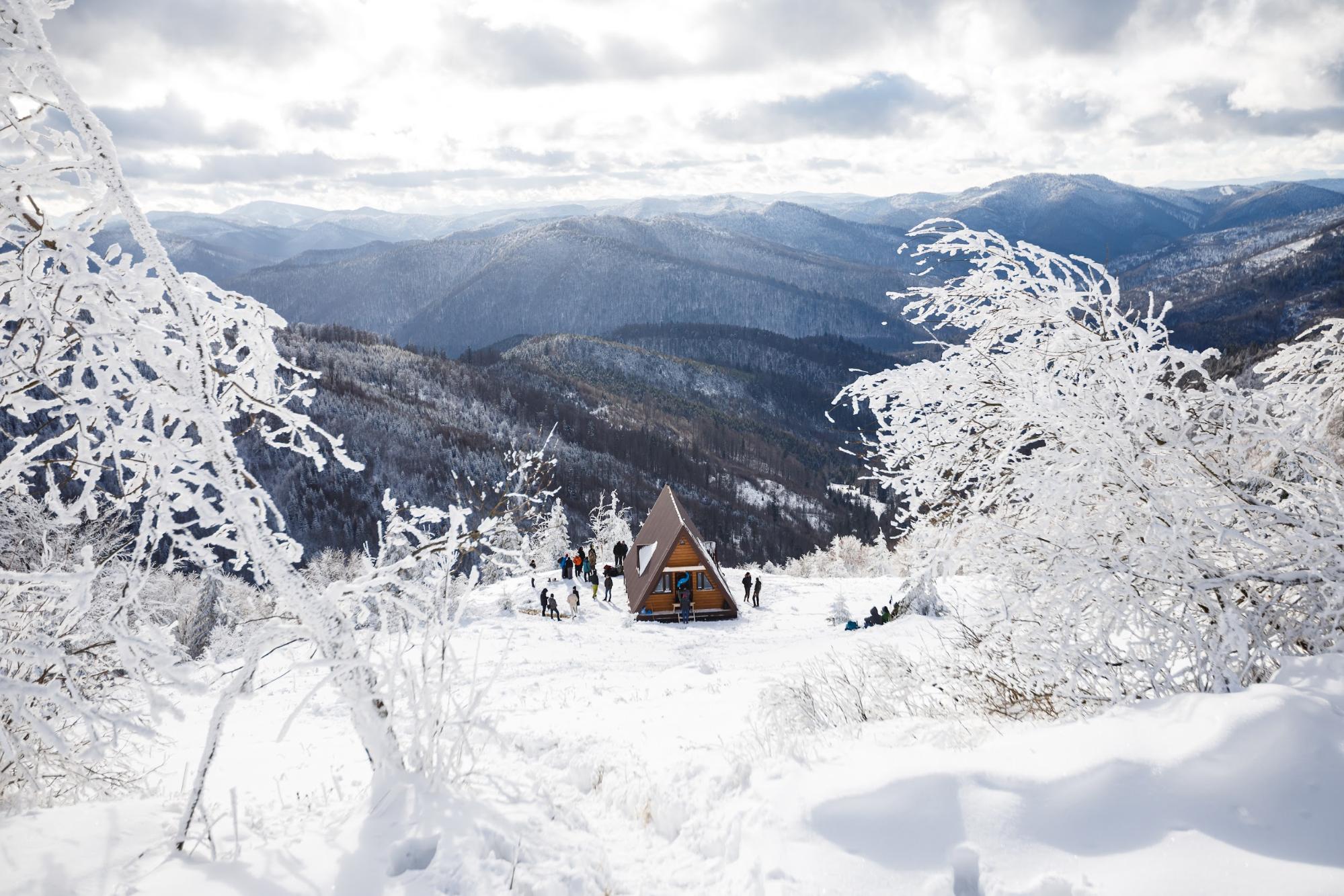
TT Shelter on Mount Paraska.
A new tourist shelter was opened on Mount Paraska, located in the Skole Beskids, on the route with the most significant flow of tourists. The mountain house became not only a place where people could rest, wait out bad weather, and spend the night but also a living memory of the fallen defender of Ukraine. The TT Shelter, as the tourist shelter was named, was built in honor of soldier Taras Havrylyshyn, who died on November 1, 2022, during the liberation of the Kherson region.
Friends and relatives of the fallen soldier found a way to preserve his memory by continuing his work and implementing a socially useful project. Rubryka tells about the creation of a shelter in the Ukrainian Carpathians in honor of the hero.
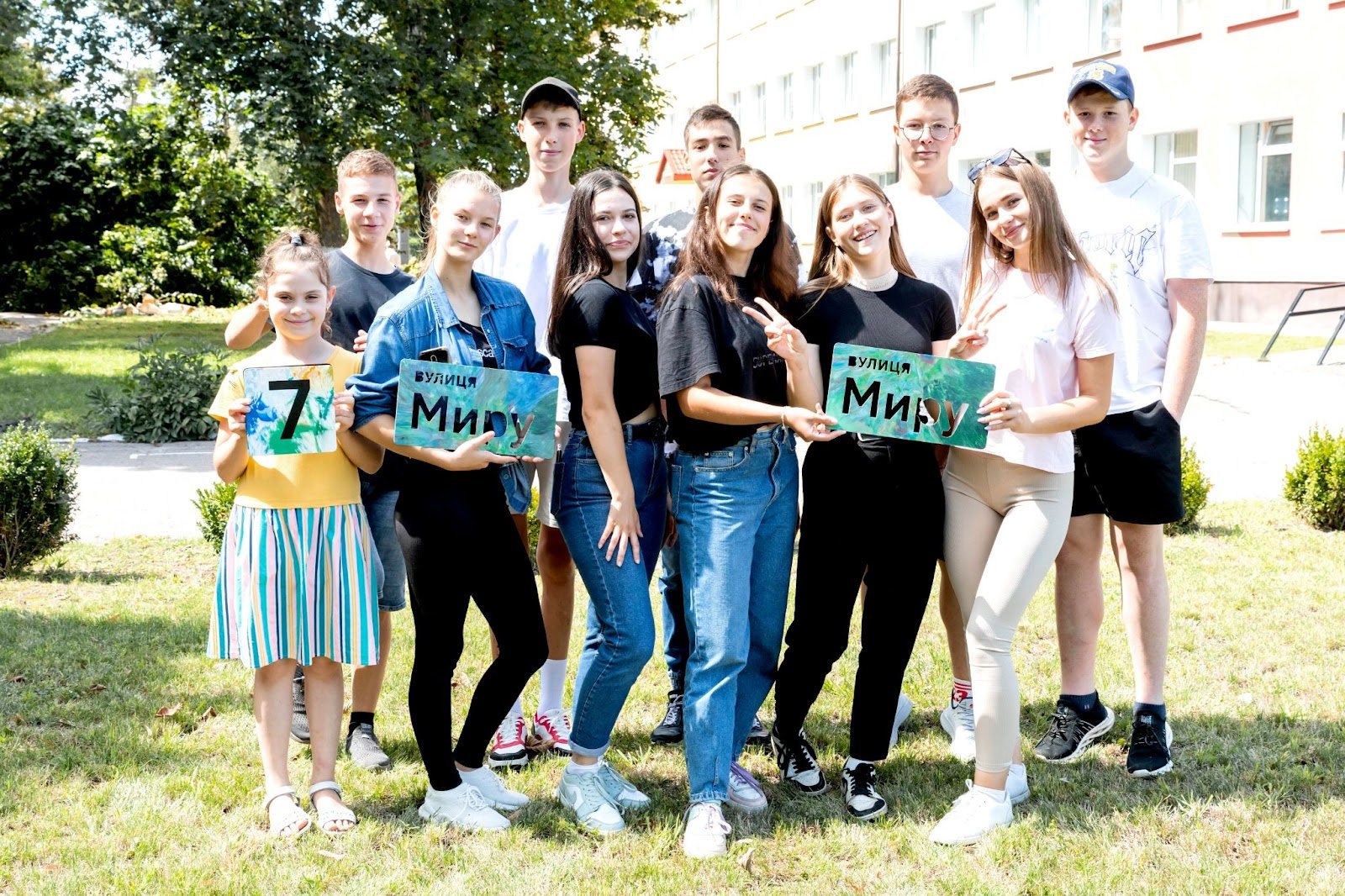
Kulykivka team.
In spring 2022, all signs were taken down in the Kulykivka community in the Chernihiv region. This was done to hinder the enemy's advancement. Although the region of Chernihiv has since been liberated, the streets of Kulykivka still lack any signposts. This poses a significant inconvenience for the numerous internally displaced persons (IDPs) residing in the village.
The students from Kulykivka Lyceum took action and decided they didn't want to sit around. Their project aims to enhance navigation in their hometown, bring in tourists, and preserve the environment. Rubryka interviewed the students and their mentors to learn about what motivates young people to contribute to the rebuilding of Ukraine and how they came up with the idea of using plastic bottle caps for this purpose.
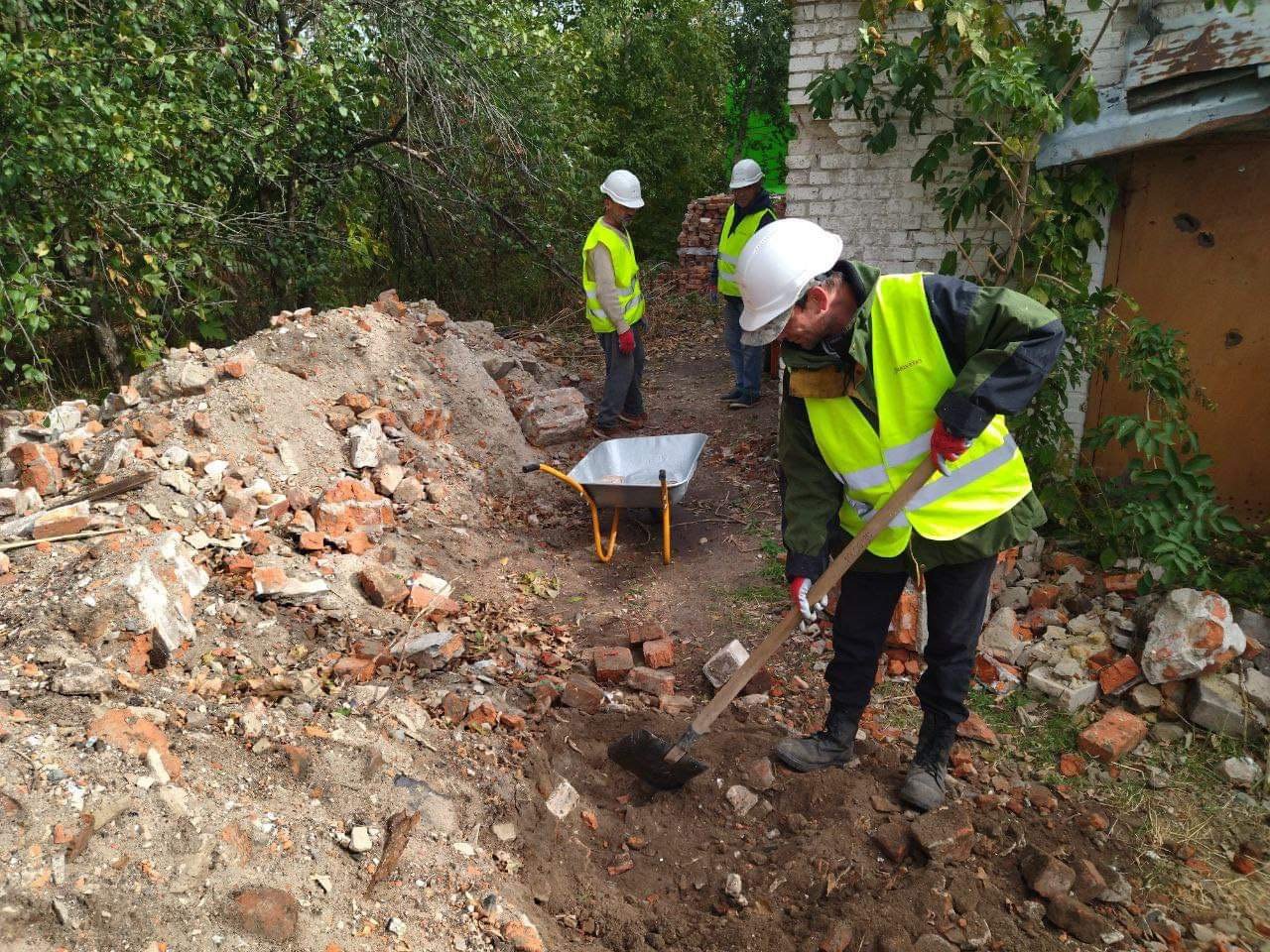
In the village of Ruska Lozova, they are looking for surviving bricks for reconstruction.
The war generates millions of tons of destruction waste – and as Russia continues shelling Ukrainian cities, the number of the toll of destruction grows every day. Such waste requires special treatment – but most of it is taken to landfills, which are already overflowing.
A significant part of this destruction waste can be recycled, and the approach of circular construction helps to reduce it significantly. At the same time, there is an urgent need to restore damaged homes in the liberated territories. Kharkiv region knows how to combine it. Here, eco-activists are the first in Ukraine to implement the idea of restoring housing from materials removed from buildings destroyed during hostilities.
The project was called Circular Construction in Practice and Rybryka shares about its work here.
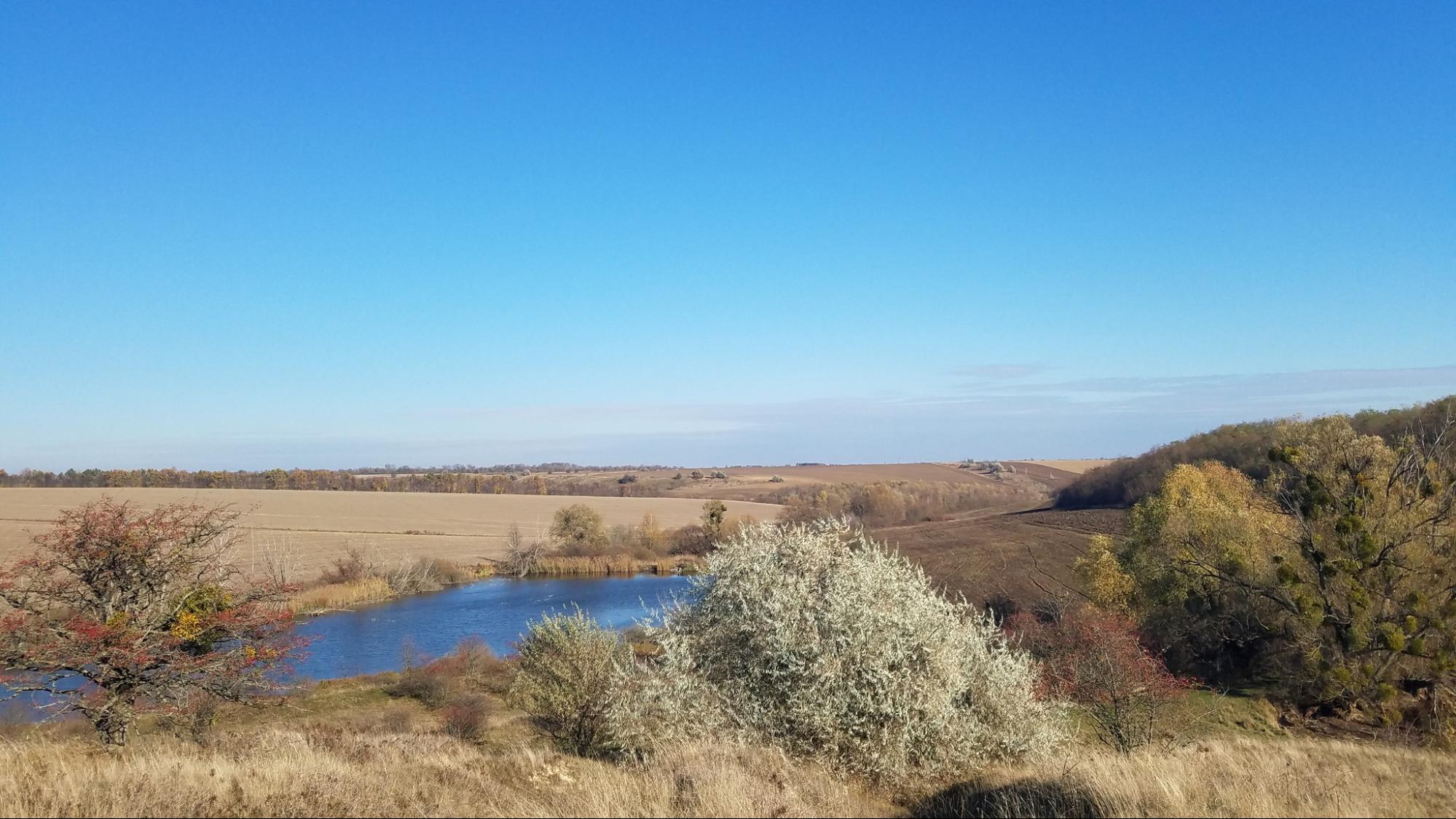
Fields close to the reservoir in the Cherkasy region/Photo by Petro Testov
Damage to the Ukrainian environment is caused not only by the enemy but also by the Ukrainians themselves, who want more profit for the economy or their own pockets than for the general well-being.
The state is failing to fulfill the obligation assumed in the regional development strategy for 2021-2027 to turn 15% of the state area into protected areas by January 1, 2030. As of January 1, 2023, according to the Ukrainian Nature Conservation group, 3.52% of the necessary lands were protected according to the Strategy until 2030.
Environmental organizations and environmentalists keep their fingers on the pulse and sound the alarm when they see threats to nature. It is essential to join their initiatives and thus create public pressure that officials or irresponsible businesses can no longer ignore.
Rubryka has collected several relevant initiatives for which every vote of support is important.

Competition in Austin. Photo: Ukrainian Puzzles Facebook
Russian missile and drone attacks on civilians have destroyed a large amount of civilian infrastructure in Ukraine. Although many notable buildings remain in ruins, they continue to live on in the photos and memories of Ukrainians. The Ukrainian Puzzles project preserves the beauty of Ukrainian monuments in the form of their puzzles. The funds from their sale will go to reconstruction after the company reaches a net profit.
Currently, the Ukrainian Puzzles team runs speed puzzle competitions and participates in festivals to raise money for charity. In a conversation with Yaryna Zhurba, the author of the idea and co-founder of the project, Rubryka learned how the Ukrainian Puzzles project works.
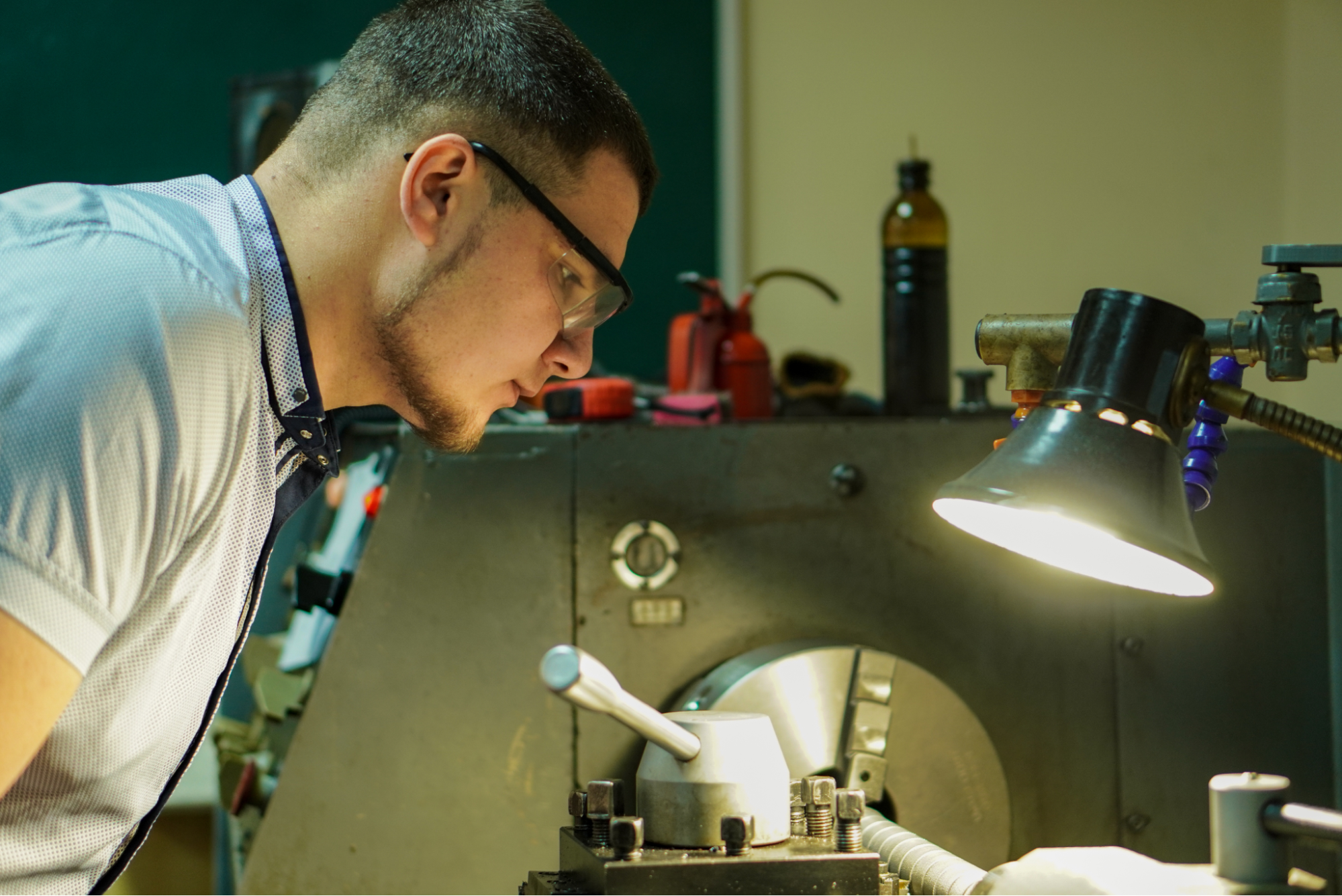
In Ukraine, the demand for technical specialists has increased many times. The military and those related to them say that Ukraine's victory is based on technology. Whether Ukraine wins this war depends on whether it can create innovative defense solutions. However, Ukraine has been haunted by a shortage of students in technical specialties for decades. A full-scale war only exacerbated the problem.
Rubryka visited Zhytomyr Polytechnic State University to find out the answer to the main question: can the university become a source of innovation for the future of Ukraine? There, we learned how the university develops an innovation hub, supports the creation of startups by students, and where the future of Ukrainian higher education institutions may lie.

Lamp from the Uragan rocket launcher. Photo from the family archive
And again — about war waste. It is not only about the results of destruction but also about the actual remains of what caused that destruction. Something needs to be done with all of this. In particular, it should be processed.
A couple from the Kharkiv region created the project Good out of Evil. Before its creation, the family of artisans met the needs of military acquaintances on their own and with the help of friends. Until Mariia and Stas Zakabluk realized they could turn war "trophies" into tableware or decorative elements. In a couple of months, they managed to send about ₴30 thousand from the sold products to the front. Is it difficult to make Good out of Evil? Is it difficult to process military waste? Rubryka explains.
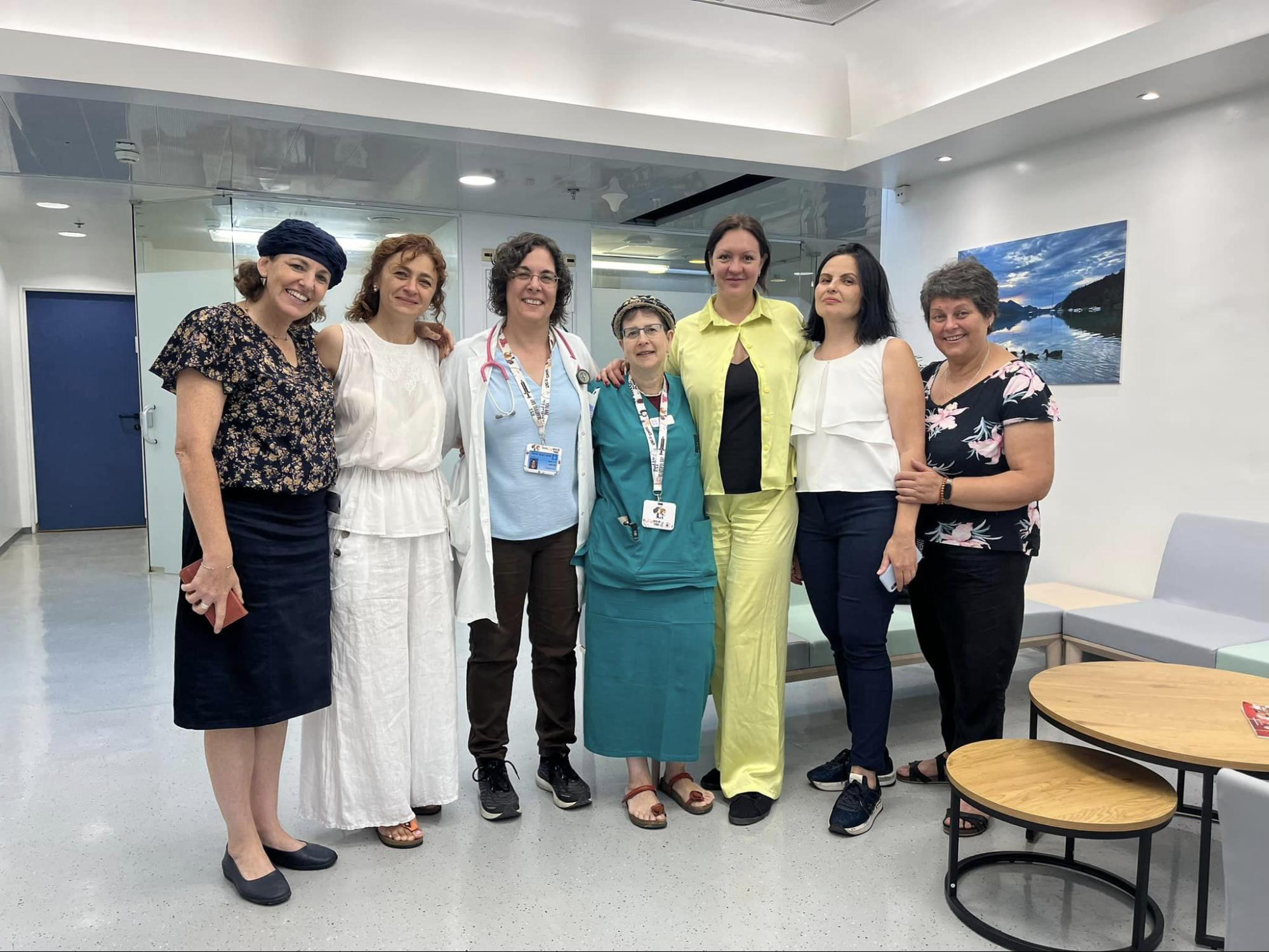
In the photo: Zoya Maksymova (in a yellow suit) with colleagues at the Israeli medical center Hadassa. Photo from Zoya Maksymova's archive
Palliative care is a type of medical care for individuals who cannot be cured. The main focus of palliative treatment is to provide anesthesia and relieve symptoms as much as possible for these patients.
Despite the state's assistance, it is often inadequate in quantity and quality. The war has led to a growing number of individuals in need of palliative care, but Ukraine is still navigating this issue.
Rubryka discovered the services the SVOYI charity fund offers and how the state supports those in need. It also explored what constitutes high-quality palliative care and how doctors' perspectives need to shift for this care to become patient-focused at the state level.
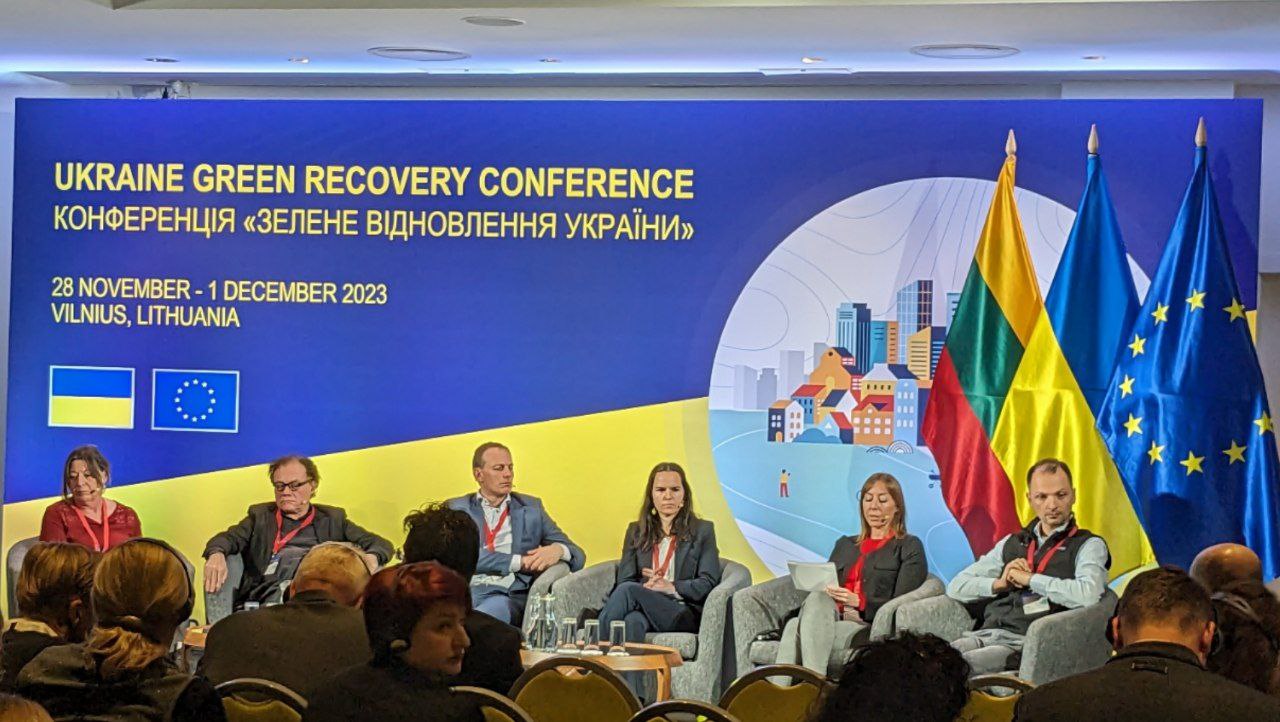
Left to right: Moderator Lynn Barratt, Eddy Deruwe from the Flemish Energy and Climate Agency, Paul Van Rosmalen from the Municipality of Rotterdam, Monica Ruiz Roso and Lidia Lopez from the Regional Government of Extremadura, and Andreas Sedlmair from INSTAGRID GmbH. Olena Bakonina took the photo for Rubryka.
During the international conference in Lithuania from November 29 to December 1, attendees discussed innovative strategies for ecological rebuilding in Ukraine.
In his opening remarks at the conference, European Commissioner for Environment, Oceans and Fisheries Virginius Sinkevičius emphasized the need to prioritize ending the war. However, once the war ends, focusing on rebuilding with a strong emphasis on environmental sustainability is crucial. This is essential for securing long-term prosperity.
Therefore, it is necessary to implement a "green" reconstruction of Ukrainian territories with our European partners' help and expertise. This can be accomplished through the construction of sustainable buildings and ecological infrastructure.
Rubryka was also present at the conference and highlighted the most captivating takeaways.
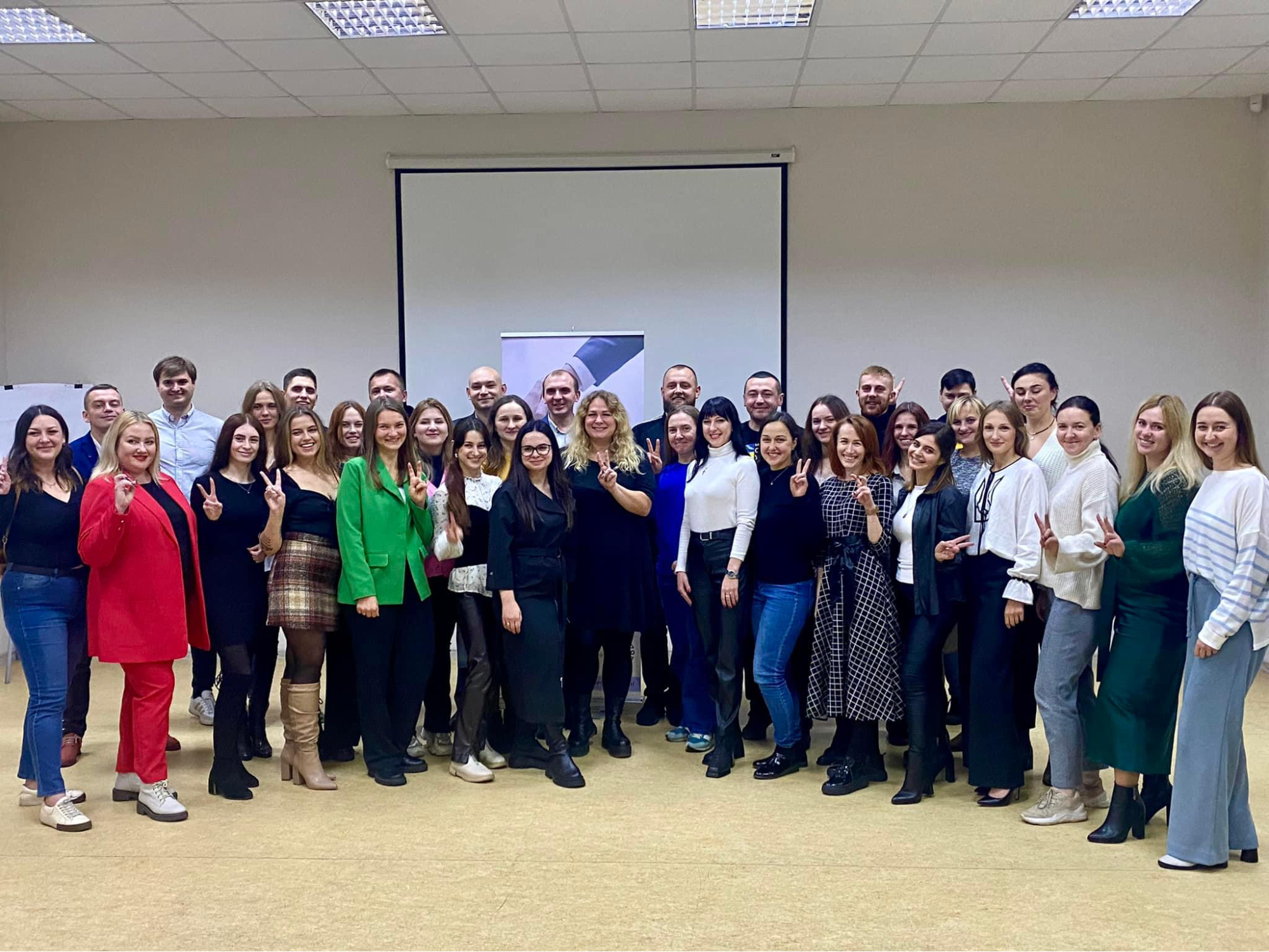
Graduation of the second stream of the School of Small and Medium Business Support.
Since the beginning of the war, small and medium-sized businesses, which at the time of the full-scale invasion constituted the majority of all companies in Ukraine, became the force that kept the country's economy afloat. However, the latest studies show that small and medium-sized businesses are not going through the best of times. According to the results of the first half of 2023, 12.8% of enterprises completely or almost completely stopped work. Among the negative factors that hinder the development of entrepreneurial activity are the unpredictability of the state's actions in relation to business, increased pressure from security forces and control bodies, and lack of access to financial resources.
However, there is also good news — Ukrainians remain optimistic despite the war and other difficulties. People look to the future with hope, believe in their strength, and continue creating new businesses. According to OpenDataBot, more new private enterprises are now being opened in Ukraine than are being closed. As of the beginning of autumn, more than two million private enterprises are officially working in Ukraine. Despite the full-scale war, small and medium-sized businesses are growing and even breaking pre-war records.
Opening a new business during the war is not easy and risky. However, if you approach the problem responsibly and calculate and plan everything, you can open your own business and even achieve success. In the Zhytomyr region, people with business ideas and a desire to start their own businesses are helped by the educational project School of Small and Medium Business Support. Here, we discuss what future entrepreneurs are taught and why such initiatives are important.







